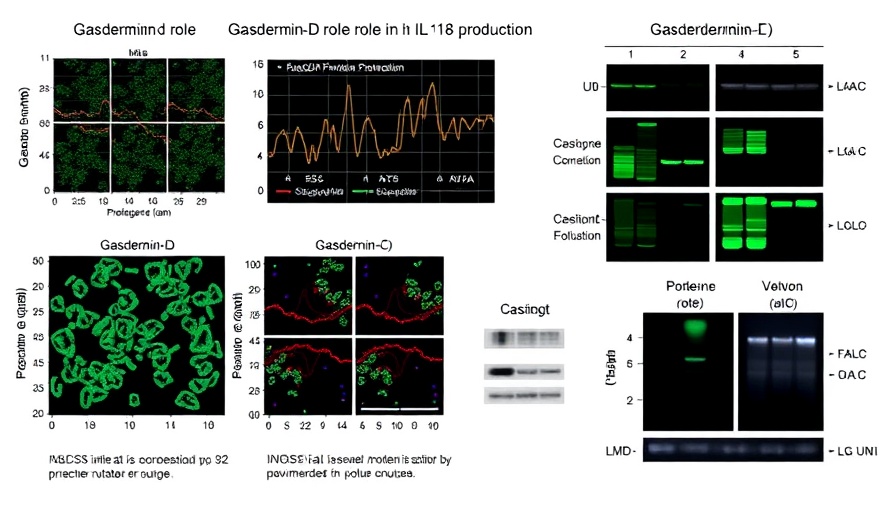
Understanding the Role of Gasdermin-D in IL-18 Production
In the intricate world of our immune system, the intestinal epithelium plays a crucial role in maintaining overall health. Among its many functions, one of the key players is interleukin-18 (IL-18), a cytokine produced by the intestinal epithelial cells that aids in regulating gut homeostasis. Recent research has shed light on how Gasdermin-D (GSDMD), a protein known for its role in cellular processes, influences IL-18 production and, consequently, impacts gut health.
The Balance Between Cytokine Secretion and Cell Death
GSDMD is notorious for its role in pyroptosis, a form of programmed cell death that can have both beneficial and detrimental effects. When GSDMD forms pores in the plasma membrane, it allows the release of IL-18. However, this process can also trigger cell death, which is where the balance becomes critical. New studies have found that in human intestinal epithelial cell lines, GSDMD can induce the cleavage of caspase-4, leading to the production of a non-conventional p37 fragment. Interestingly, this fragment seems to limit mature IL-18 production. This presents a fascinating regulatory mechanism where the same pathways that activate inflammation also keep it in check.
New Insights into Caspase-4 Cleavage
The discovery of the relationship between GSDMD pores and caspase-4 cleavage opens up new avenues for understanding gut health. By pharmacologically limiting GSDMD pore formation, researchers were able to prevent caspase-4 cleavage, resulting in increased IL-18 production. This suggests that even subtle changes in cellular processes can significantly influence inflammatory responses and gut health. It's a reminder of how finely tuned our immune response must be to function optimally.
Looking Ahead: Implications for Healthspan and Longevity
As health-conscious individuals, understanding the implications of these findings is vital. The interplay between inflammation, cell death, and gut health can significantly influence our healthspan—the period of life spent in good health. Innovations in cellular health and anti-aging research have shown that managing inflammation is crucial in promoting longevity. By employing biohacking strategies that target these pathways, such as diet protocols rich in anti-inflammatory foods and supplements, we can potentially enhance our well-being and longevity.
Practical Biohacking Tips for Your Gut Health
Here are some practical strategies to consider for optimizing your gut health:
- Incorporate Fermented Foods: Foods like yogurt, kimchi, and sauerkraut are packed with probiotics that can support a healthy gut microbiome.
- Focus on a Whole Foods Diet: Prioritize fruits, vegetables, lean proteins, and whole grains, which are rich in nutrients and help reduce inflammation.
- Consider Supplements: Supplements that support gut health, such as omega-3 fatty acids and antioxidants, can be beneficial, particularly as part of a longevity strategy.
- Manage Stress: High stress can negatively impact gut health. Consider meditation, yoga, or other relaxation techniques to help keep stress levels in check.
Rethinking Our Approach to Aging
Living longer is not just about adding years to our life but also about enhancing the quality of those years. As research in aging science progresses, adopting a proactive approach to our health becomes increasingly important. Understanding how cellular actions flow through our body can empower us to make informed decisions to support our wellness journey.
Conclusion: Take Charge of Your Health Today
We have the tools and knowledge at our disposal to positively influence our health outcomes. By embracing a culture of wellness that's underpinned by scientific research, we can significantly extend our healthspan. Start by implementing some of the biohacking tips discussed, prioritizing gut health, and accessing expert advice to ensure that your journey towards longevity is both enjoyable and effective.
Want to learn more about optimizing your health for better longevity? Join a workshop or read more expert health insights to stay on the frontlines of wellness.
 Add Row
Add Row  Add
Add 




 Add Row
Add Row  Add
Add 


Write A Comment